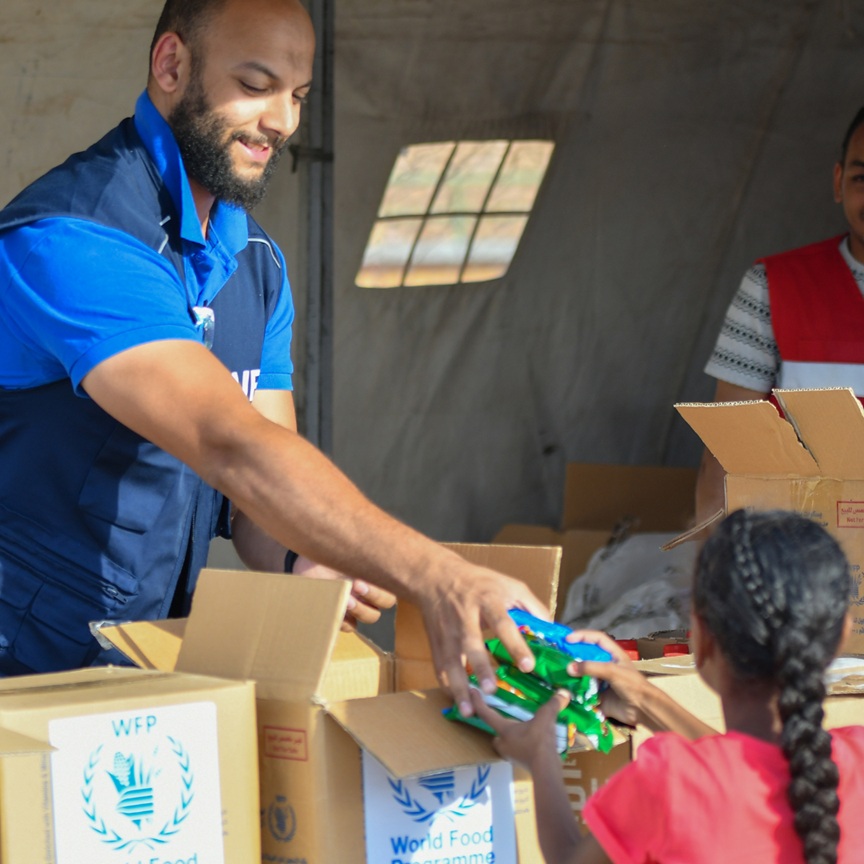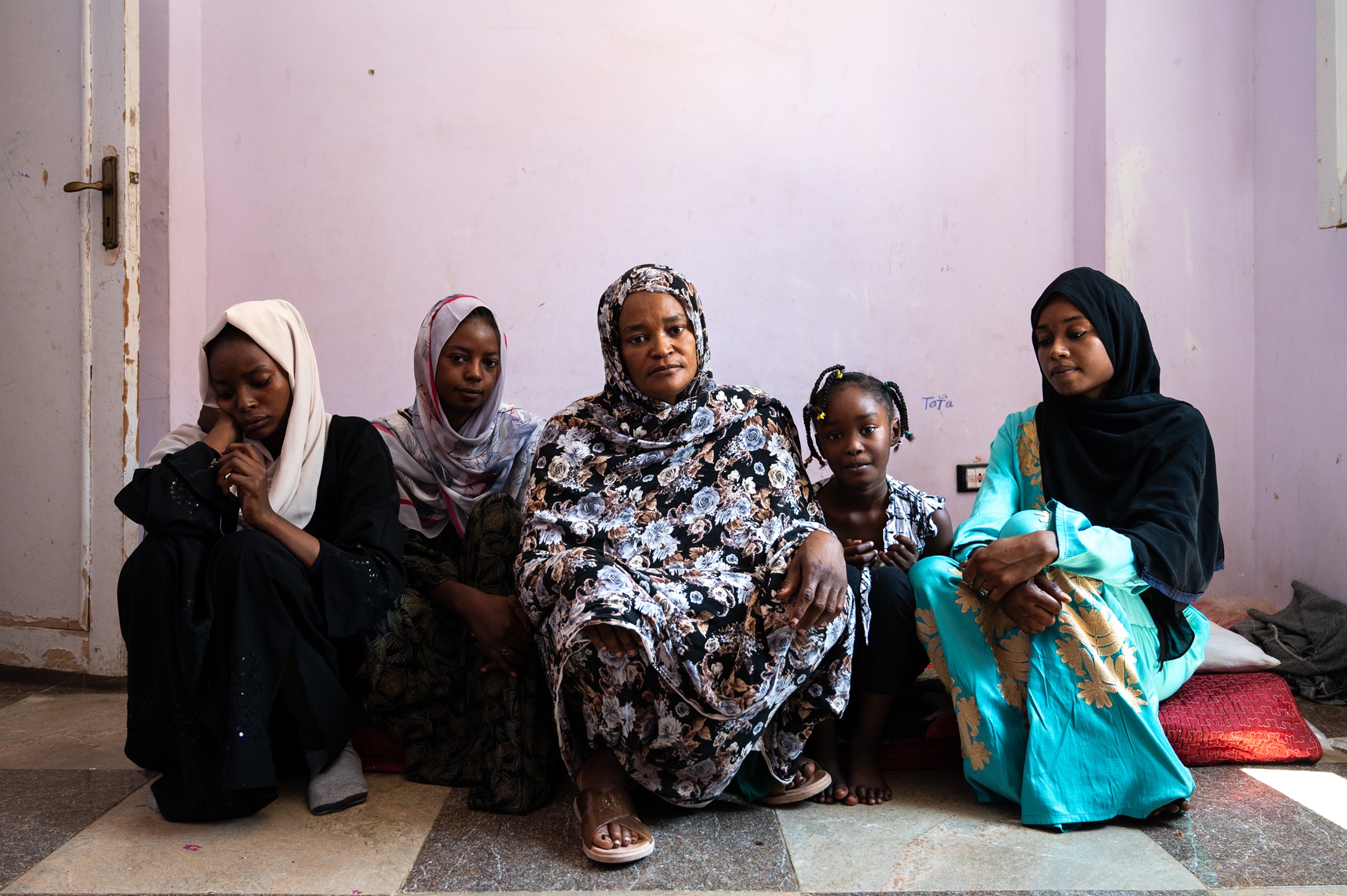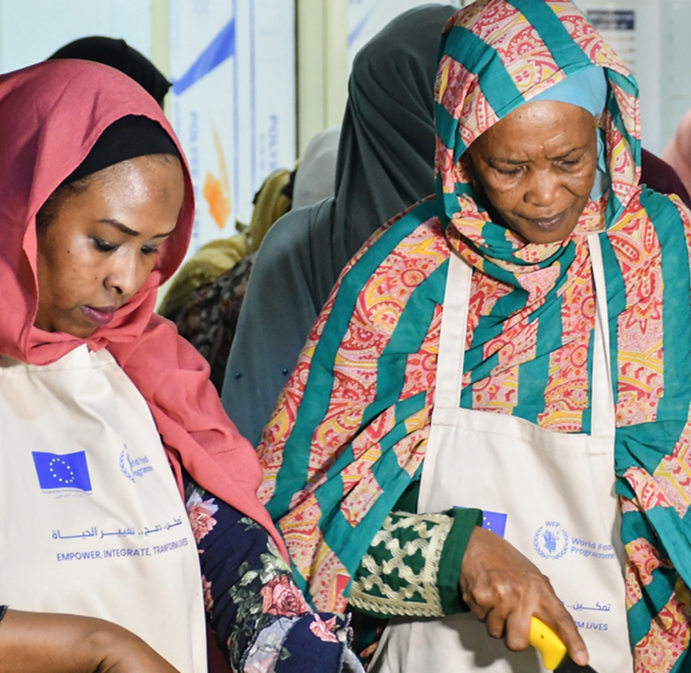The United Nations World Food Programme (WFP) in Egypt has issued an urgent appeal for funding as it faces the prospect of suspending humanitarian food assistance to more than 235,000 refugees and vulnerable people in Egypt by August 2025. The challenge in securing funding, driven by shifting donor priorities, evolving relief strategies, and regional tensions, has come at a real human cost.
Among those at risk is Hafsa, a Sudanese refugee and mother of four, who fled conflict in her homeland to Egypt, only to now face a new peril: the prospect of food insecurity. Having relied on WFP’s assistance to keep her family fed, Hafsa is emblematic of the thousands of families who may soon be left without basic support.
This week, WFP Egypt said it is confronting a critical shortfall and will need at least USD 21 million (EGP 1.064 billion) to sustain operations through the end of 2025. Without immediate funding, food assistance could be suspended within weeks, a development that would disproportionately impact those most vulnerable, among them women and children.
“It is an extremely challenging situation,” said WFP Egypt Country Director Jean-Pierre de Margerie. “WFP will have to cut its assistance to more and more refugees and crisis-affected people if urgent funding is not secured, which may ultimately lead to the suspension of WFP’s humanitarian assistance in Egypt.”
He added that this is a measure of last resort given the devastating impact this will have on thousands of vulnerable families across Egypt.
De Margerie explained that when resources are limited, there is a responsibility to ensure that the most vulnerable are prioritized. He explained that WFP is using rigorous poverty and food security analysis assessments to identify the most vulnerable families and to guide difficult prioritization decisions, ensuring that those in greatest need continue to receive support for as long as possible.
Earlier in March, WFP Global had warned that it was experiencing a funding crisis, with its 2025 global budget slashed by 40 percent, a shortfall that threatens essential aid for 58 million people worldwide.
The organization relies heavily on voluntary government contributions, with more than 60 countries supporting WFP’s humanitarian and development operations worldwide, including top donors in 2024 such as the United States, followed by Germany.
The funding shifts are compounded by ongoing global conflicts. As war rages in Sudan, Syria, Gaza, and Ukraine, and with rising tensions between Israel and Iran involving the United States, donor governments are redirecting resources elsewhere, while humanitarian needs continue to soar.
“WFP acknowledges the generosity of donors who have been supporting our programmes for years. Thanks to their contributions, we have been able to provide critical aid to those fleeing conflict and hardship,” de Margerie told Egyptian Streets. “But recent fundraising has become increasingly challenging and is forcing WFP to scale back its humanitarian aid to crisis-affected people.”
The alarm in Egypt comes amid a broader reckoning within the humanitarian aid community following a sweeping rollback of U.S. assistance earlier this year.
The funding gap signals the growing strain on the global humanitarian financing system, and nowhere are the consequences more immediate than in Egypt, a country that has long served as a refuge for people fleeing conflict across the Middle East and Africa.
Since 2013, the WFP in Egypt has provided food and nutrition support to refugees from Syria, Sudan, South Sudan, Yemen, and beyond, while also funding programs that benefit host communities, including vocational training and livelihood support aimed at fostering social cohesion.
“The impact [of these funding cuts] will not end there. Beyond the immediate humanitarian toll, the ripple effects of inaction could backtrack hard-earned progress that’s been achieved in food security over the past years. As desperation rises, so too does the risk of increased irregular migration and heightened protection risks, particularly for women and children,” de Margerie explained.

With funding dwindling and global needs surging, WFP Egypt has launched the #NowNotLater campaign to galvanize public and donor support. The campaign calls on donors and partners for support now to help prevent this crisis and protect the most vulnerable while asking individuals, organizations, and influencers, to amplify the message of the #NowNotLater campaign – raising awareness, spreading the word, and sounding the alarm to draw attention to the severity of the situation and help close the funding gap.
“Should additional support become available, WFP will immediately scale up and reinstate assistance to reach the most vulnerable,” said de Margerie.
“We urge the donor community to stand together, uphold humanitarian principles, and act decisively. Now, more than ever, coordinated global support is essential to ensure that life-saving food assistance can resume and expand where it’s needed most.”
Supporters are urged to post content tagging @WFP_Egypt using the hashtag #NowNotLater.
(Except for the headline, this story has not been edited by PostX News and is published from a syndicated feed.)



